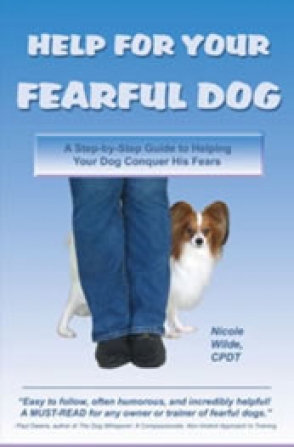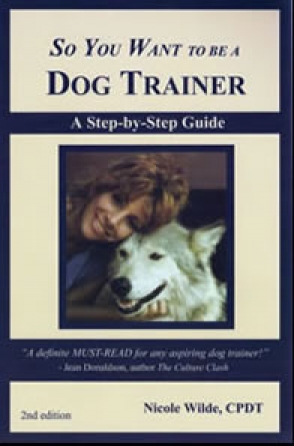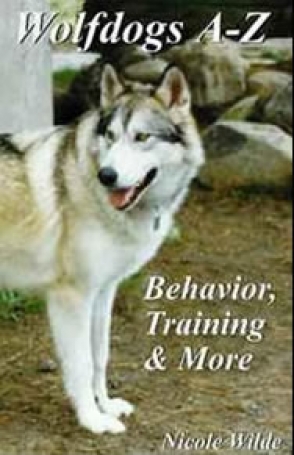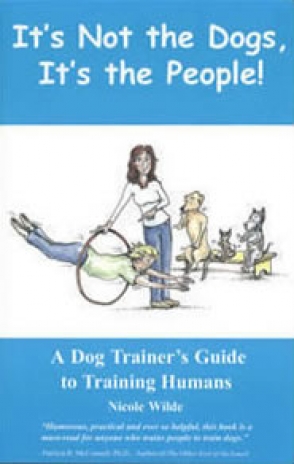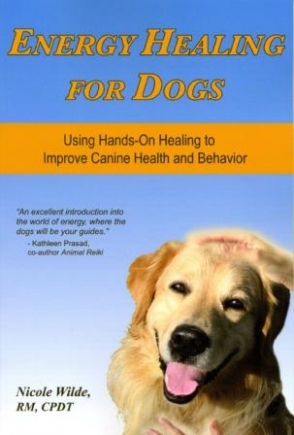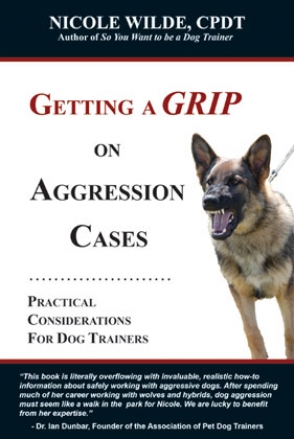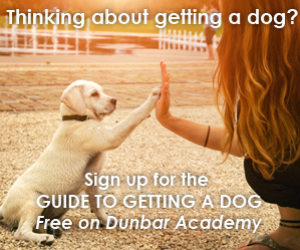Is your dog afraid of strangers? Would he rather hide than play with other dogs? Does he take cover at the sound of thunder, or cringe when you pick up a brush or nail clippers? Never fear!
"They'll Turn on You!"
“I’d never own a (insert breed here), they’ll turn on you!” If I had a dollar for every time I’ve heard that sentiment, I’d be blogging from a beach in Tahiti. Breeds commonly mentioned in that dismissive, breedist phrase include dobermans, pit bulls, rottweilers, wolf hybrids (okay, not an actual “breed,” but still), German shepherds, and others.
An unfortunate regurgitation of the old turn-on-you myth recently surfaced in website comments posted in response to the tragic incident at the home of actor Ving Rhames. In case you haven’t heard, while Rhames was out of town shooting a film, four of his dogs—three bullmastiffs and an English bulldog—were loose on the grounds. The 40-year-old groundskeeper, who had known the dogs for two years, was found dead on the property, covered in bite marks. The immediate conclusion was that the dogs had mauled him to death. Now there is talk that a heart attack is suspected as well; currently, the cause of death is inconclusive, and animal control is waiting to determine the fate of the dogs. Regardless, the incident was horrific and tragic on many levels.
As to the dogs, neighbors said they never felt threatened by them, and characterized them as “generally friendly.” Bullmastiffs are, in fact, known for a gentle temperament, and for being good with children. The ones I have trained over the years have been nothing but big bundles of brindle mush. However, Los Angeles Police Department Lieutenant Ray Lombardo’s immediate statement after the Rhames incident was, “Law enforcement has reported on stories before, where homeowners have had their dogs, what they call family dogs, turn on them or their children. This appears to be another tragic incident along those same lines." We will probably never know exactly what happened that night. A man is dead, and he was covered in bite marks. I am not defending the dogs. But the story begs the question, do dogs really “turn” on people?
There is no question that dogs bite and even, on occasion, maul people. But they don’t turn on people “for no reason,” any more than people do. Here are a few possible explanations for sudden onset aggression in any dog, of any breed:
1. The dog was giving stress signals or warnings that the human missed. Growling is obvious (although some people still unwisely ignore it), but more subtle signs include lip licking, yawning, or turning away of the head and/or body. These signals are easy to miss if one is not trained to look for them. If a person keeps handling a dog in a way that is stressful, or proceeding toward a dog when the dog is giving warning or stress signals, the dog may well take action.
2. There is some history of mistreatment or harsh physical coercion between dog and person, and the dog has had enough. Or perhaps a child had been incessantly teasing the dog, and the dog was pushed past its tolerance level. (I remember watching a video of a trainer jerking a dog repeatedly, and harshly, for not performing a heel correctly. The dog finally had enough and bit the trainer. Did the dog “turn” on him? Nope. In fact, the dog’s response was totally understandable under the circumstances.)
3. The dog is not feeling well, or has an injury or medical condition.
4. Pack behavior; this is one possible explanation for what happened at the Rhames home. For example, if the groundskeeper had a heart attack while interacting with or being in close proximity to one of the dogs, and fell on the dog, that dog might have bitten defensively. Seeing the dog biting the man, the other dogs might have “packed up” and joined in. Does that mean all dogs will do this? No, but pack instinct is strong, and it is a possibility.
Troubling as well in the responses to the Rhames incident were statements to the effect that anyone owning a mastiff or pit bull must be crazy, or be making up for some personal insecurity. It’s true that some people do get those breeds for the wrong reasons. And I’m the first to agree that there are individual dogs—and not just of those breeds, by the way—who are so aggressive that euthanization is the only option. But to make the sweeping statement that owning a pit bull, mastiff, rottweiler, any other “tough” breed is just asking for trouble or (enter pejorative statement here) is not only rude, it’s ignorant.
It is true that an aggressive pit bull or mastiff can inflict a lot more damage than, say, a pissed off Chihuahua; believe me, there are plenty of those too, you just won’t hear about them on the 5 o’clock news. There is a definite responsibility and liability that goes along with owning any dog, but that is amplified when the dog is capable of severe physical damage.
Barring a freak circumstance such as a brain tumor or sudden physical ailment, by the time a dog bites a person severely, that dog has had plenty of practice. A common progression is for the dog to begin showing aggressive tendencies during adolescence; it may begin with growling, air-snapping, then perhaps lunging and nipping/retreating, and without intervention, move on to tentative and then increasingly harder, more confident bites. It is unfortunate that some owners excuse their dogs’ aggressive tendencies or play them down until someone like the neighbor’s child (read: someone who might cause a lawsuit) gets bit. In any case, the dog’s aggressive behavior could hardly be called “sudden.”
The bottom line is that in most cases, “The dog turned on him!” is simply not an accurate assessment of the situation. And the fact that the dog was of a certain breed might make a difference in the extent of the damage, but it is certainly not the sole reason for an incident. Good breeding practices, along with the way an individual dog is socialized, trained, and treated have a lot to do with the resulting temperament. I would personally like to see “deed legislation” as opposed to breed legislation; the actions of the dog should be on trial rather than the dog’s breed. Owners must take responsibility for, and should be liable for, their dogs’ actions. Promoting accurate information to the public about dog behavior, particularly aggression, can help to stop breedism and finally lay old myths such as “they’ll turn on you” to rest once and for all.

